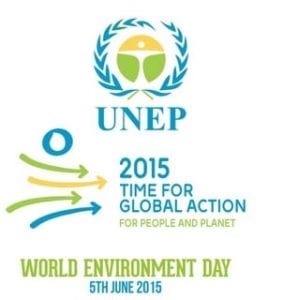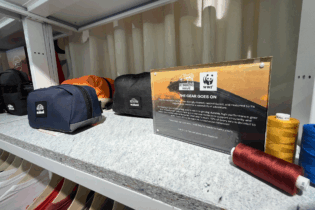World Environment Day (WED) 2015 will be celebrated on Friday 5 June all around the world. WED is the UN’s primary vehicle for promoting proactive international environmental awareness and . Over 40 years, WED has grown to be a broad, global platform for public outreach that is widely celebrated by stakeholders in over 100 countries.
The WED theme this year is “Seven Billion Dreams. One Planet. Consume with Care.” According to UNEP, the well-being of humanity, the environment, and the functioning of the economy, ultimately depend upon the responsible management of the planet’s natural resources. Evidence is building that people are consuming far more natural resources than what the planet can sustainably provide.
Many of the Earth’s ecosystems are nearing critical tipping points of depletion or irreversible change, pushed by high population growth and economic development. By 2050, if current consumption and production patterns remain the same and with a rising population expected to reach 9.6 billion, we will need three planets to sustain our ways of living and consumption.
National Environment Month
According to a press release issued by the Department of Environmental Affairs on 3 June, concerns for the environment and its ability to sustain our current consumption patterns grow, globally the move towards sustainable development is becoming increasingly urgent. There is an acknowledgment that the earth’s supply of natural resources is not infinite. Faced with the real threat of climate change, sustainable development becomes more pertinent and significant from the South African and worldwide perspective. The Minister of Environmental Affairs, Mrs Edna Molewa emphasised, “None of these goals can be achieved without the contribution of all South Africans, and citizens of the world. In keeping with the theme of this year’s World Environment Day of “Seven Billion Dreams. One Planet, Consume with Care”, it is pertinent to consider that it is the responsibility of each and every person to protect our environment, to do more with less or ensure that greater care is taken in the way limited resources are consumed, in order to secure a sustainable future for all.” Minister Molewa went on to call on all South Africans to do something for our environment, no matter how small. “It is only through our collective commitment and power that we will have a positive impact on mother earth, and in so doing, contribute to the United Nations Environment Programme’s goal of ensuring that all people become agents for change,” she said.Environment Month Activities
- The national celebrations of the World Environment Day will take place in Kimberley, Northern Cape on 6 June 2015, with provinces and various municipalities also expected to host celebratory events. The commemoration will focus on key environmental aspects such as job creation in the environment sector, sustainable development, biodiversity and weather. In addition, the event will focus on environmental careers. This is particularly befitting as June is also Youth Month in South Africa.
- Other key events in June include World Oceans Day on 8 June and the World Day to Combat Desertification (WDCD) on 17 June.







